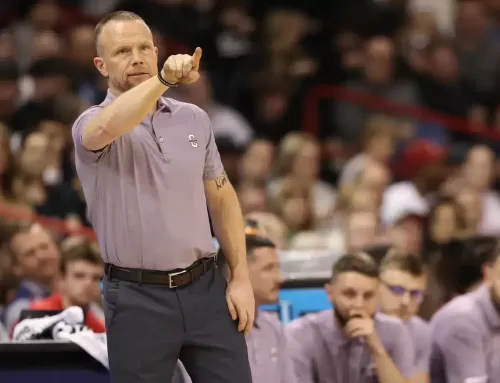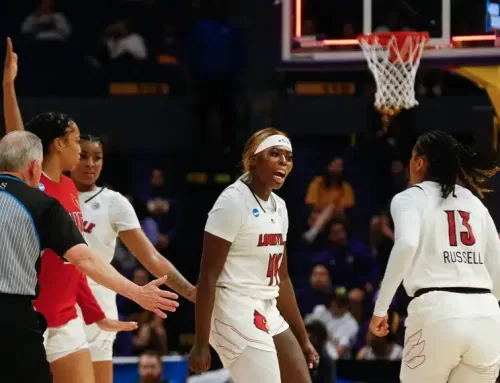Q: Now that we’ve got a growing green school initiative on campus, I want to know, what are your goals for that, where do you see that going, what’s the ultimate end result of these green initiatives?
A: We’re going to reduce our carbon footprint. And we’ve made a commitment to that. We were one of the earliest schools to sign the [Presidents’ Climate Commitment], a number of years ago, and in there it talks about reducing our carbon footprint. And so what we’ve tried to do is create a campus wide sustainability council… It really does make a difference.
Q: Do you think that incentives for higher graduation rates are a fair way to fund universities?
A: I think performance funding is very appropriate and I think that it shouldn’t be just one indicator; it should be a cocktail or basket of indicators. Because we’re to be a premier nationally recognized metropolitan research university, so we have a research focus, we have a focus in the community and so Wes Moore is going to the West End, and we have our signature partnership initiative where we work in schools and do all kinds of stuff in health care and social services and economic development stuff… I think that the council on post-secondary education should develop a credible funding program, and it should include a component that is performance-based…
Q: The University of Louisville visits many high schools across Kentucky. Is there special attention given to counties with high poverty levels?
A: Yes… Normally what we’ll do is visit a school or two and then we’ll have an event … We’ve been to quite a few schools in Eastern Kentucky. Now, the numbers are not great, but there are good quality students. One example: We went to Magoffin County in Eastern Kentucky. They wanted us to come to Magoffin County because one of our Speed School professors, Glen Prather, was from Magoffin County. They wanted him to come back and say, “Hey, look. This guy got out of Magoffin County, got his college degree, got a Ph.D and look what he’s doing. You all can do it.”
Q: There have been a couple of reports about your potential retirement process being put into place, what can you say about this?
I started in 2002 … They asked me to get them through the budget cuts of 2002 … I went to the board in 2005 and said, “We’ve gotten through the budget cuts, I think you ought to think about succession.” They came back and said, “No, we want you to stay in… “ They wrote my contract until 2020, but it’s in sort of two-year increments … If I stay to [2014], there are [financial] incentives. If I stay to 2016, there are greater incentives … I’m trying to take it in two-year chunks … My intent would be to stay, absolutely, stay to 2014 and hit the $1 billion goal for the Capital Campaign… In 2014, I’ll see how my health is and see what the Board [of Trustees] thinks.
Q: Do you want to go back to teaching after retirement?
A: I would. There’s no question about that … I’ll have been out of the classroom so long that I’ll have to significantly retool, and I don’t know if you can teach really old dogs new tricks. I was a good classroom teacher – that’s the only thing I’m really good at, is teaching. But when you’re away from it, you’ve changed, technology has changed … When I started teaching in 1974, all you needed to teach economics was a piece of chalk and a chalkboard. It’s different now and students are different now … technology changes, economics changes. Would I like to? Yeah. But it’ll take some work to live up to the level of proficiency that we expect from our faculty.
[email protected]
Photo: Laura Adkins/The Louisville Cardinal






